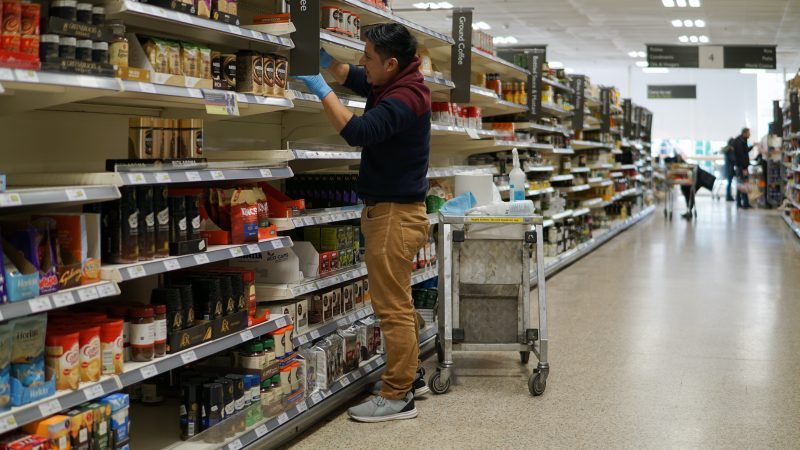
A parliamentary petition to introduce a new law to ensure the protection of shop staff and create a “specific offence of abusing, threatening or assaulting a retail worker” has reached over 58,000 signatures.
Launched by union Usdaw last month and backed by Co-op Food, the British Retail Consortium and the Association of Convenience Stores, the petition became the fastest growing on parliament’s website after gaining 10,000 signatories in a day.
Usdaw general secretary Paddy Lillis urged the government to commit to bringing in a new law to protect workers after a survey by the shopworkers’ union earlier this year found that incidents of abuse had doubled during the pandemic.
Commenting on the support for the petition, Lillis said: “We are delighted that the petition has already passed the halfway point of triggering a parliamentary debate. It is no surprise, because this is a hugely important issue for our members.
“With incidents of abuse doubling during the Covid-19 crisis, they are saying loud and clear that enough is enough, abuse should never be just a part of the job.
“I am grateful to the employers for supporting the petition. When retailers and the trade union for shop workers unite in a call for action, it should be time for the government to sit up, listen to our concerns and deliver much needed protection for staff.
“I urge the government to respond positively to my petition, listen to the voices of shop workers and employers and commit to legislating for stiffer penalties for those who assault workers. They have talked about zero-tolerance, but that means very little if it is not backed up by strong actions.”
The government has published its response to a call for evidence on the issue of abuse towards retail staff, but said it “believes that this issue is one that requires more urgent action than it does a change in the law”.
The general secretary added: “The measures the government have already agreed are worth trying and we hope that they can make a real difference.
“However, they would be much more likely to succeed if backed up with new legislation; a simple standalone offence that is widely recognised and understood by the public, police, CPS, the judiciary and most importantly criminals.
“Retail staff have a crucial role in our communities and that role must be valued and respected, they deserve the protection of the law.”
The survey carried out by Usdaw, which received responses from 4,928 shopworkers between March 14th and April 17th, showed that 62% of those surveyed were verbally abused, 29% were threatened and 4% assaulted.
The union has explained that these figures are likely an underestimate because the analysis assumed the worker was only assaulted once and because the survey was conducted in mainly larger union organised workplaces, which tend to be safer.
The petition can be signed by any UK resident. As it now has more than 10,000 signatures, the government will issue a formal response; if it gains more than 100,000 supporters, the petition will be considered for debate in parliament.
Below is the full text of the petition.
Enact legislation to protect retail workers. This legislation must create a specific offence of abusing, threatening or assaulting a retail worker. The offence must carry a penalty that acts as a deterrent and makes clear that abuse of retail workers is unacceptable.
Throughout the coronavirus outbreak, retail workers have been spat at, threatened with infection of Coronavirus and physically assaulted. Since the start of the outbreak, the average retail worker has been assaulted, threatened or abused every 6.5 days, more than double the rate of incidents compared to 2019.
Key workers across retail have been undervalued for too long. We need to recognise the valuable contribution of these workers and ensure they are safe whilst undertaking essential work.




More from LabourList
Scottish Parliament elections 2026: Full list of Labour candidates for Holyrood
‘As metro mayors gain power, Labour must tighten political accountability’
Letters to the Editor – week ending 22 February 2026